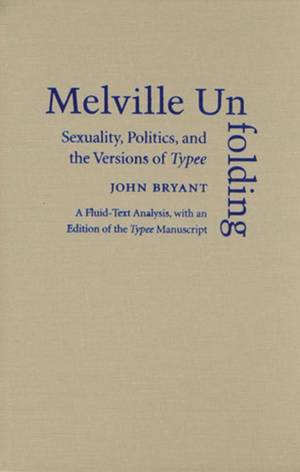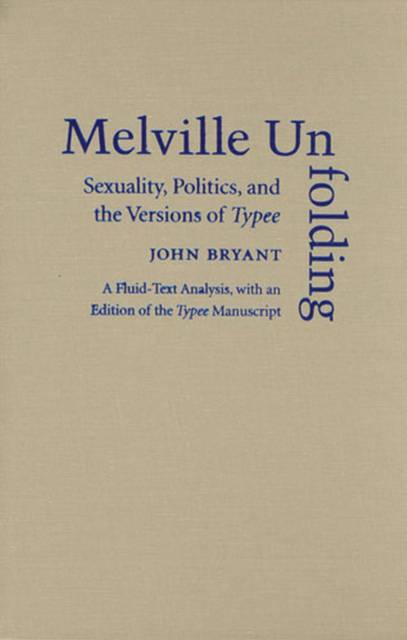
- Afhalen na 1 uur in een winkel met voorraad
- Gratis thuislevering in België vanaf € 30
- Ruim aanbod met 7 miljoen producten
- Afhalen na 1 uur in een winkel met voorraad
- Gratis thuislevering in België vanaf € 30
- Ruim aanbod met 7 miljoen producten
Omschrijving
Typee: A Peep at Polynesian Life was published in 1846 and was Melville's most popular work, offering Victorian readers startling and romantic glimpses of island people and practices.
The Typee manuscript was discovered only in 1983, and is considered one of the most important literary manuscripts in nineteenth-century American studies. Melville Unfolding offers a new approach to literary analysis, focusing on how the "invisible text of revision" is made visible in the critical construction of the novel. This volume is linked to an electronic edition of Typee, providing a model for how critical analysis and textual editing work synergistically and how print and online technologies can complement one another.
Melville Unfolding walks readers through the intriguing twists and turns of Melville's writing process, detailing the delights and frustrations of reading a writer in manuscript. In jargon-free prose, John Bryant introduces the scholarship of manuscript study, the use of the revision narrative, and the benefits of the fluid-text analysis---asking readers to consider what a text is, how it comes into being, how it evolves, and how the study of a fluid text enhances our understanding of writers, writing, and culture.
John Bryant is Professor of English at Hofstra University and Editor of the Melville Society. His books include The Fluid Text: A Theory of Revision and Editing for Book and Screen and the Modern Library editions of Melville's Tales, Poems, and Other Writings and The Confidence-Man.
Specificaties
Betrokkenen
- Auteur(s):
- Uitgeverij:
Inhoud
- Aantal bladzijden:
- 480
- Taal:
- Engels
Eigenschappen
- Productcode (EAN):
- 9780472115921
- Verschijningsdatum:
- 15/04/2008
- Uitvoering:
- Hardcover
- Formaat:
- Genaaid
- Afmetingen:
- 165 mm x 237 mm
- Gewicht:
- 816 g

Alleen bij Standaard Boekhandel
Beoordelingen
We publiceren alleen reviews die voldoen aan de voorwaarden voor reviews. Bekijk onze voorwaarden voor reviews.











